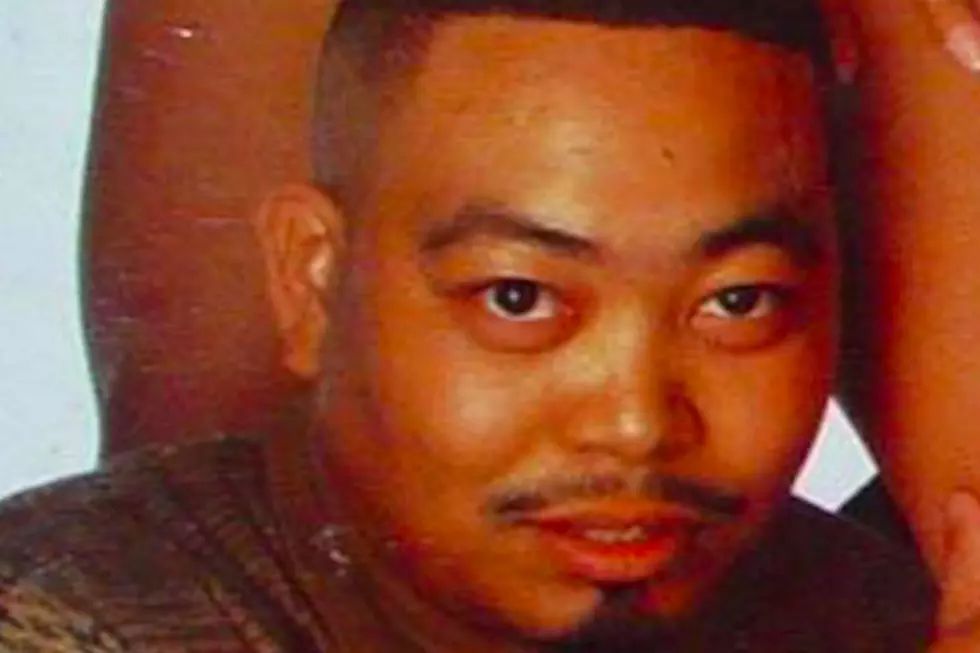
How 2 Live Crew’s ‘Banned in the U.S.A.’ Album Gave the Finger to the Powers That Be
When it comes to raunchiness in hip-hop, 2 Live Crew reign supreme.
Comprised of rappers Uncle Luke (f.k.a. Luke Skyywalker), Fresh Kid Ice, Brother Marquis and producer Mr. Mixx, 2 Live Crew would make history with their infatuation with the love below and their outrageous live performances, which consisted of an abundance of women baring their assets onstage while the fellas moved the crowd.
Founded by Mr. Mixx, Kid Fresh Ice and former group member Amazing Vee in 1984, the trio released their debut single, "Revelations," on their own label, Fresh Beat Records. Kid Ice, who was stationed in Riverside, Calif. at the time, would often sneak off the army base on weekends -- risking prosecution for being out of the range of reach -- to perform their bubbling hit in Miami, Fla., where the song had gained traction locally.
He then decided to move to Miami (sans Amazing Vee, who left the group for creative differences) in hopes of capitalizing on the success of "Revelation." Fresh Kid Ice and Mr. Mixx would become acquainted with Luther "Luke Skyywalker" Campbell, a local DJ and club promoter, and Brother Marquis, a California rapper whom Mr. Mixx had met years prior and promised to lend a helping hand if he ever hit it big in the music industry.
2 Live Crew released their debut album, The 2 Live Crew Is What We Are, in 1986, on the group's independent record label, Luke Records. The album's content was a stark contrast to 2 Live Crew's initial recordings, which were more of the light-hearted variety. This project featured the unabashed dirty-talk we associate with them today. That added wrinkle to the group's sound can largely be credited with Luke's influence. He was infamous for his infectious chants from his days controlling the crowds while rocking parties. This served as the special ingredient needed to put the quartet over the top.
The 2 Live Crew Is What We Are would be certified gold off of the strength of the singles "We Want Some P----" and "Throw the 'D'" and catapult the group to stardom. However, they would be the subject of controversy after a Florida store clerk was arrested on felony charges after he sold a copy of the album to an 11-year-old girl. While the clerk was later acquitted, the ordeal marked the calm before the eventual storm that would engulf Luke and company. 2 Live Crew returned in 1988, with their second LP, Move Somethin', which continued the group's streak of gold albums -- not to mention headlines after another record store clerk was arrested for selling the project to a minor.
Watch 2 Live Crew's "Banned in the U.S.A." Video
2 Live Crew reached their zenith with the 1989 release, As Nasty As They Wanna Be, one of the most polarizing albums of all-time, regardless of genre. While cuts like "Me So Horny" caught fire across the country, the powers that be were not too fond of Luke and his group's philandering ways, particularly the American Family Association, which spearhead one of the biggest legal fights over freedom of speech in music history.
After being ruled obscene by U.S. district court Judge Jose Gonzalez in June of 1990, As Nasty As They Wanna Be was deemed illegal to sell or perform, ultimately leading to the arrest of a Florida store clerk and 2 Live Crew themselves for violating the law. As freedom of speech advocate Al Goldstein, Henry Louis Gates, Jr., and others battled on behalf of the crew in court, Luke, Fresh Kid Ice, Brother Marquis and Mr. Mixx went into the studio and knocked out their fourth LP, Banned in the U.S.A.
Released on June 13, 1990, Banned in the U.S.A. was credited as a Luke solo album featuring the 2 Live Crew, but featured all group members. This was the first album to ever sport the Parental Advisory warning sticker on its cover and was inspired by the group's much publicized fight for their right to talk naughty.
Banned in the U.S.A. begins with the lead single and title track, a song that features an interpolation of Bruce Springsteen's 1984 hit, "Born in the U.S.A." which the legendary rocker allowed the 2 Live Crew to use as a sign of solidarity in support of their First Amendment rights.
"We've got white-collar people tryna cramp our style / Saying we're too nasty and we're too live / Corrupted politicians playing games / Bringing us down tryna boost their names," raps Fresh Kid Ice, immediately putting their artistic plight to the forefront and sending shots at their detractors, while Brother Marquis adds his own two cents on the second verse with lines like "The First Amendment gave us freedom of speech / So what you saying, It didn't include me?"
Luke -- who had changed his name from Luke Skyywalker due to a lawsuit from Star Wars creator George Lucas -- provides commentary, interview clips and ad-libs, pushing home the point that their music is being painted with the wrong brush. The smoothed out number, "Man, Not a Myth," features a sample of Betty Wright's 1974 release, "Tonight Is the Night," and finds Fresh Kid Ice and Marquis pledging their loyalty to their team and recounting their road to the riches.
The allure of the southern strip club is well-documented today, but in 1990, the culture had yet to hit the mainstream. 2 Live Crew pay homage to the scene in what may very well be one of the earliest mentions of famed Atlanta strip club, Magic City, on the Banned in the U.S.A. cut, "Strip Club," before ratcheting up the tempo a bit with "Do the Bart," a song centered around the latest dance sensation of the time.
Watch 2 Live Crew's "Do the Bart" Video
"Face Down, Ass Up" is one of 2 Live Crew's most recognizable songs in their catalog and proves that the opposition from law enforcement and the judicial system had not made them faint of heart. They get their intentions across with the utmost transparency. "Bass 9-1-7" is an intermission cut that includes a few inspirational words from Luke, who lives up to his "Uncle" moniker with his encouragement of his fellow Floridians to strive for the better and seek prosperity. Then there's a dose of storytelling on Banned in the U.S.A. with "Mamolapenga," a track which features the crew on the prowl for some Latina lovelies.
The album's main event may be a song that features no rapping at all. "I Ain't Bulls---tin' Part 2" serves as an all-out assault, with Luke specifically targeting Salt-N-Pepa and Kid 'N Play after taking umbrage with comments that were made about the content of 2 Live Crew's music during a sit-down with BET's Donnie Simpson. The scathing interlude led to a response track, titled "Next Question" from Kid 'N Play on their 1991 release, Face the Nation, as well as a retort from 2 Live Crew affiliate J.T. Money, titled "P---- Ass Kid N Hoe Ass Play," both of which are among the more underrated diss tracks ever recorded.
After also sending shots at Tipper Gore, Broward Country Sheriff Nick Navarro and Florida Governor Bob Martinez, Luke throws a slight jab at MC Hammer in the form of a backhanded compliment: "Hammer, you blow a lot of people off the stage, but you know... you can't touch this."
On face value, 2 Live Crew and political rapsters Public Enemy would have nothing in common, but Professor Griff and Luke did the unexpected and found common ground, leading to Griff to make an appearance on the Banned in the U.S.A. posse cut, "This Is to Luke From the Posse," which also features an appearance from Poison Clan. "F--- A Gang" falls in line with the anti-gang rap songs that were all the rage in the late '80s and early '90s, ending Banned in the U.S.A. on a surprisingly positive note.
This album would fail to duplicate the double platinum success of As Nasty As They Wanna Be, only managing to secure a gold plaque for the crew's efforts when all was said and done. However, Banned in the U.S.A. is arguably the group's most coherent and cohesive project to date, even when critics such as Los Angeles Times writer Greg Sandow, viewed the album as a letdown. "Banned in the U.S.A. -- which doesn’t generate even the grotesquely exaggerated erotic heat of As Nasty as They Wanna Be -- gets a low grade," he wrote and gave the LP a "C" in the 1990 review.
But many critics and fans view the broadened topics and subject matter as being more refreshing than a detriment to the artistry of 2 Live Crew. All of the obscenity charges against the group were eventually overturned in the Supreme Court, giving them a chance to return to their outlandish, hyper-sexual musings. Banned in the U.S.A. would prove to be the beginning of the end for their magical run, but stands as one of the most important albums of its era because of what it represents: the freedom to be as nasty as they want to be on record.
See 100 Hip-Hop Facts That Will Blow Your Mind
More From TheBoombox
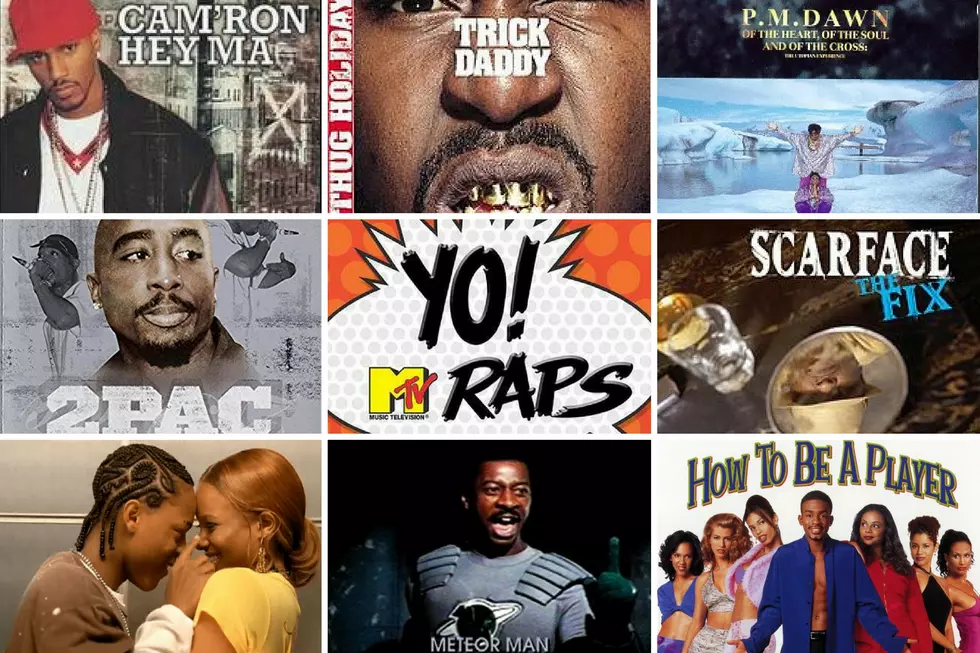
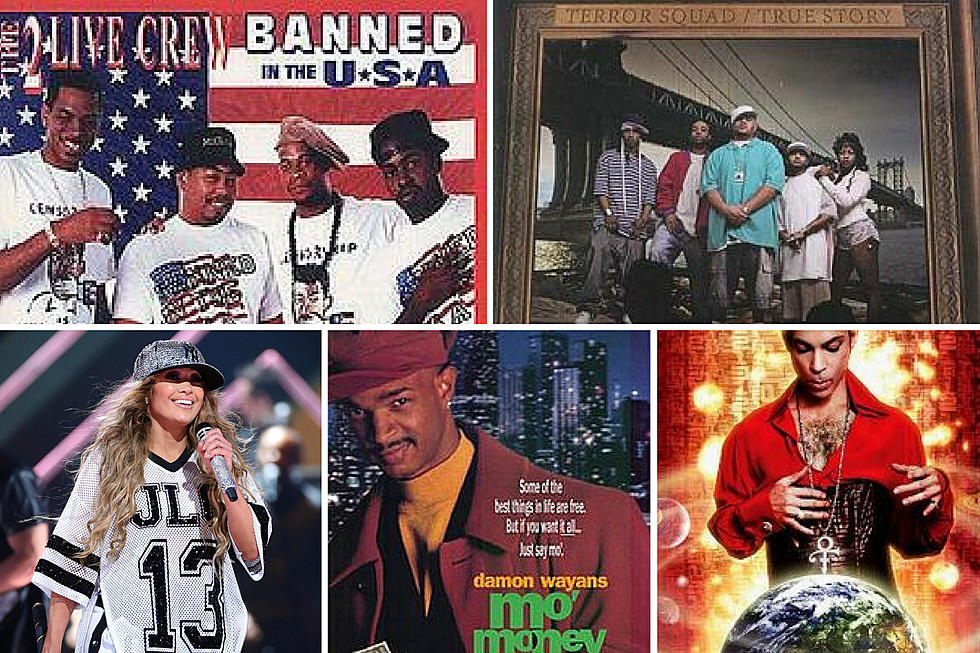


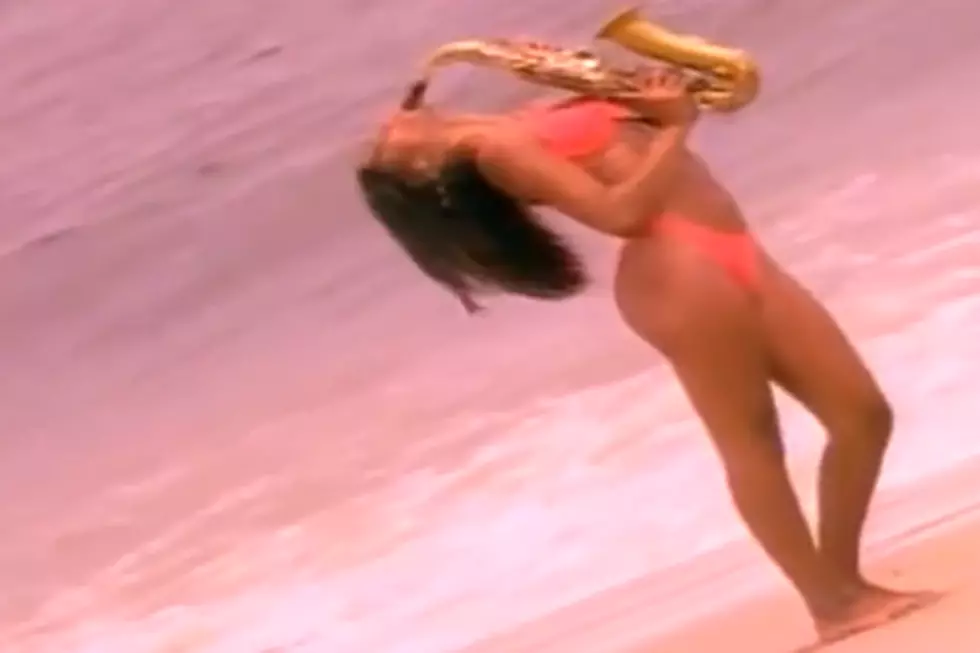
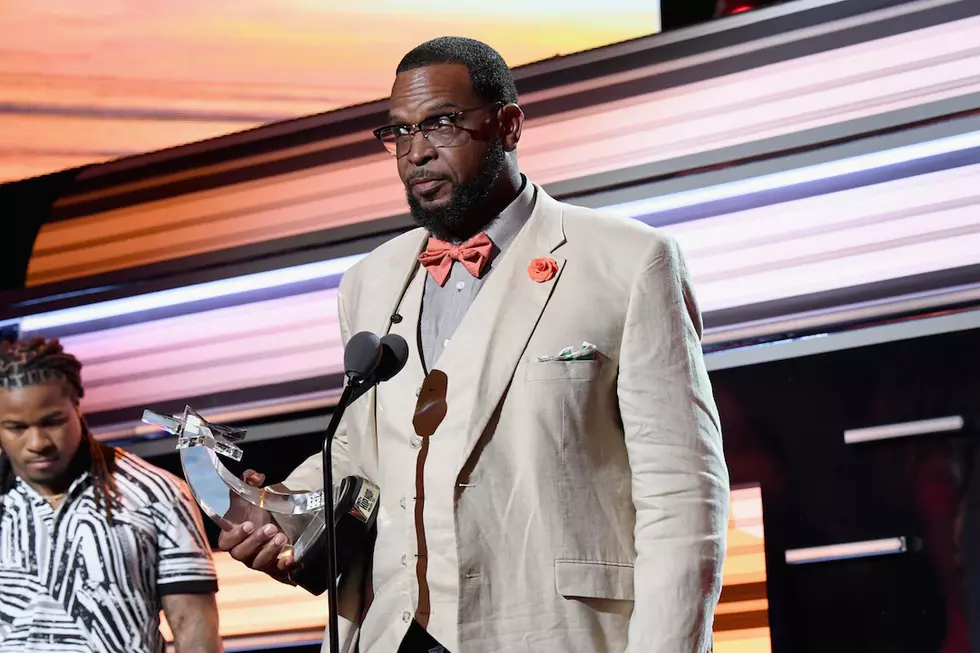
![Uncle Luke Denies He Dissed Funkmaster Flex and DJ Red Alert at 2017 BET Hip Hop Awards [VIDEO]](http://townsquare.media/site/625/files/2017/10/Uncle-Luke-Addresses-Funk-Flex-Diss-Rumors.jpg?w=980&q=75)
